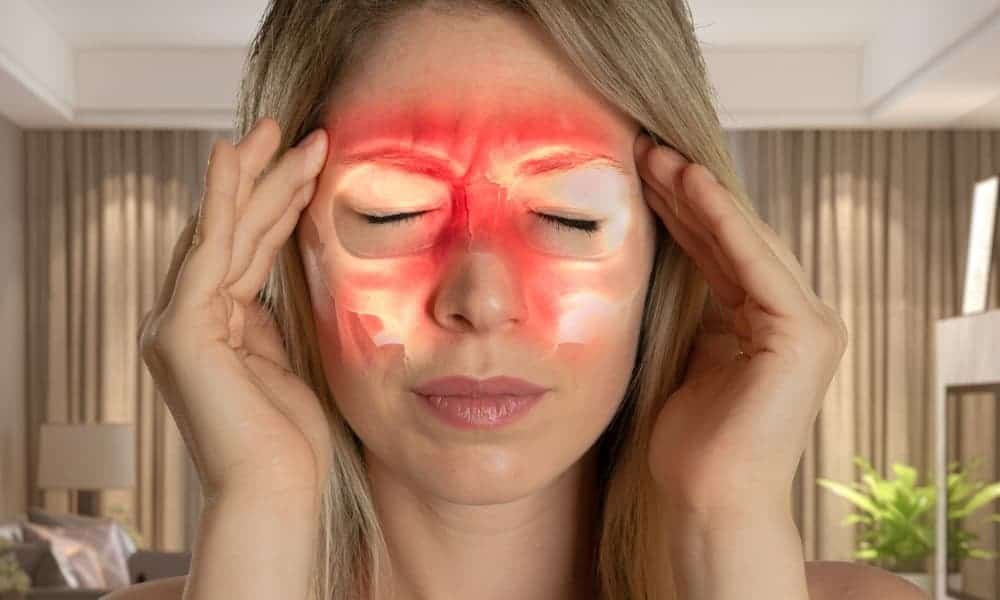What vitamins should I take daily as a woman? As a woman, understanding your unique nutritional needs is crucial. We’re here to guide you through the essential vitamins that will help you maintain optimal health, energy, and vitality.
Picture this: more energy, healthier skin, and bones that can take on anything. These game-changing nutrients are the secret weapon you’ve been looking for. Get ready to level up your self-care and show the world what you’re made of!
What Vitamins Should I Take Daily as a Woman?
As a woman, you know that taking care of your health is a top priority. But with so much information out there, it can be overwhelming to figure out exactly what vitamins and supplements you need to stay healthy.
The truth is, while a balanced diet is the foundation of good health, many women still experience nutrient deficiencies. In fact, research shows that over 30% of women are deficient in one or more essential vitamins and minerals.
So, what are the most important vitamins for women’s health? And how can you make sure you’re getting enough of them?
Importance of Vitamins for Women
Vitamins play a crucial role in maintaining optimal health for women of all ages. They support various bodily functions, boost the immune system, promote healthy skin and hair, and reduce the risk of chronic diseases. But here’s the thing: our bodies can’t produce most of these essential nutrients on their own.
We have to get them through our diet or supplements. As women, we have unique nutritional needs that change throughout our lives – from pregnancy and breastfeeding to menopause and beyond. That’s why it’s so important to understand which vitamins are most critical for women’s health.
Consulting with a Healthcare Provider
Before you start popping vitamin supplements, it’s always a good idea to consult with your healthcare provider. They can help you assess your individual needs based on factors like your age, diet, lifestyle, and any pre-existing health conditions. Your doctor can also recommend the right dosage and form of supplements to take, as well as alert you to any potential interactions with medications you may be taking.
Common Health Issues in Women
As women, we face a unique set of health challenges throughout our lives. Some of the most common issues include:
- Osteoporosis: This bone-thinning disease affects millions of women, especially after menopause. Getting enough vitamins and minerals is crucial for maintaining strong bones.
- Anemia: Many women, especially those who are pregnant or have heavy menstrual periods, are at risk for iron-deficiency anemia. This can cause fatigue, weakness, and shortness of breath.
- Pregnancy complications: Getting enough folate is essential for preventing birth defects and ensuring a healthy pregnancy.
- Hormonal imbalances: Vitamins like B6 and E can help regulate hormones and alleviate symptoms of PMS and menopause.
The bottom line? Taking the right vitamins and supplements, in combination with a healthy diet and lifestyle, can help prevent or manage many of these common health issues in women. So, let’s dive into some of the most important vitamins for women’s health.
Vitamin D for Strong Bones and Immune Function
Vitamin D is often called the “sunshine vitamin” because our bodies can produce it when our skin is exposed to sunlight. But did you know that vitamin D deficiency is incredibly common, especially among women?
Studies show that over 40% of women in the United States are deficient in vitamin D. That’s a big problem because this essential nutrient plays a crucial role in women’s health.
Benefits of Vitamin D for Women
So why is vitamin D so important for women? Here are just a few of the key benefits:
- Builds strong bones: Vitamin D helps your body absorb calcium, which is essential for building and maintaining strong bones. This is especially important for women, who are at higher risk for osteoporosis later in life.
- Boosts immune function: Vitamin D plays a key role in regulating the immune system and helping your body fight off infections and diseases. Some studies even suggest that vitamin D may help protect against autoimmune disorders, which are more common in women.
- Supports healthy pregnancy: Getting enough vitamin D during pregnancy is crucial for the healthy development of the baby’s bones and teeth. It may also help reduce the risk of complications like pre-eclampsia and gestational diabetes.
- May reduce cancer risk: Some research suggests that vitamin D may help reduce the risk of certain cancers, including breast, colon, and ovarian cancer.
Food Sources of Vitamin D
While our bodies can produce vitamin D from sunlight, it’s not always easy to get enough, especially if you live in a northern climate or spend most of your time indoors. That’s why it’s important to include vitamin D-rich foods in your diet, such as:
- Fatty fish like salmon, sardines, and mackerel
- Egg yolks
- Mushrooms exposed to UV light
However, it can be difficult to get enough vitamin D from food sources alone. That’s where supplements come in.
Vitamin D Supplements
If you’re not getting enough vitamin D from sunlight and diet, your doctor may recommend taking a supplement. The recommended daily allowance (RDA) for vitamin D is 600-800 IU per day for adults, but some women may need higher doses depending on their individual needs.
When choosing a vitamin D supplement, look for one that contains D3 (cholecalciferol), which is the form that’s best absorbed by the body. And be sure to take it with a meal that contains some fat, as this helps improve absorption.
And be sure to take it with a meal that contains some fat, as this helps improve absorption. It’s also important to note that taking too much vitamin D can be harmful, so always follow the dosage instructions on the label and talk to your doctor before starting any new supplement regimen.
The bottom line? Vitamin D is a crucial nutrient for women’s health, supporting strong bones, immune function, and overall well-being. So soak up some sun, eat vitamin D-rich foods, and talk to your doctor about whether a supplement is right for you.
Folate (Vitamin B9) for Healthy Pregnancy and Red Blood Cells
Folate, also known as vitamin B9, is an essential nutrient that plays a crucial role in women’s health – especially during pregnancy. Getting enough folate is one of the most important things you can do to ensure a healthy pregnancy and reduce the risk of birth defects.
But folate isn’t just important for pregnant women. This B vitamin is also essential for the production of red blood cells and the proper functioning of the nervous system. So, let’s dive into the benefits of folate for women’s health.
Importance of Folate for Pregnancy
Folate is perhaps best known for its role in preventing birth defects of the brain and spine, known as neural tube defects (NTDs). These serious defects, which include spina bifida and anencephaly, occur when the neural tube fails to close properly during early pregnancy.
Studies have shown that getting enough folate before and during early pregnancy can reduce the risk of NTDs by up to 70%. That’s why the Centers for Disease Control and Prevention (CDC) recommends that all women of childbearing age consume 400 micrograms (mcg) of folate per day, either through diet or supplements.
But the benefits of folate during pregnancy don’t stop there. Getting enough of this essential nutrient may also help reduce the risk of other complications, such as pre-eclampsia, premature birth, and low birth weight.
Food Sources of Folate
Folate is found naturally in a variety of foods, including:
- Leafy green vegetables like spinach, kale, and collard greens
- Citrus fruits like oranges and grapefruits
- Beans and lentils
- Avocados
However, many women still struggle to get enough folate through diet alone – especially if they have certain health conditions or take medications that interfere with folate absorption. That’s where supplements come in.
Folate Supplements
If you’re pregnant or planning to become pregnant, your doctor will likely recommend taking a prenatal vitamin that contains at least 400 mcg of folate. Some women may need even higher doses, especially if they have a family history of NTDs or other risk factors.
It’s important to start taking folate at least one month before you become pregnant and continue taking it throughout your first trimester. This ensures that your body has enough folate during the critical early stages of fetal development.
But even if you’re not pregnant, getting enough folate is still important for women’s health. This essential nutrient plays a key role in the production of red blood cells, which carry oxygen throughout the body. A folate deficiency can lead to anemia, fatigue, and other health problems.
If you’re concerned about your folate intake, talk to your doctor about whether a supplement is right for you. And remember, while supplements can be helpful, they should never replace a healthy, balanced diet rich in folate-rich foods.
Vitamin B12 for Energy and Healthy Brain Function
Vitamin B12 is a powerhouse nutrient that plays a crucial role in women’s health – from boosting energy levels to supporting healthy brain function. But despite its importance, many women are deficient in this essential vitamin, especially as they age.
So what exactly does vitamin B12 do for women’s health, and how can you make sure you’re getting enough? Let’s dive in.
Benefits of Vitamin B12 for Women
Vitamin B12 is involved in a wide range of bodily functions, including:
- Energy production: B12 helps your body convert food into energy, which is why a deficiency can leave you feeling tired and weak.
- Red blood cell formation: B12 is essential for the production of healthy red blood cells, which carry oxygen throughout the body. A deficiency can lead to anemia and other health problems.
- Nerve function: B12 plays a key role in maintaining the health of your nervous system, including your brain and spinal cord. A deficiency can cause numbness, tingling, and other neurological symptoms.
- Bone health: Some studies suggest that getting enough B12 may help reduce the risk of osteoporosis, a condition that causes bones to become weak and brittle.
Food Sources of Vitamin B12
Vitamin B12 is found naturally in a variety of animal products, including:
- Meat, poultry, and fish
- Eggs
- Milk and other dairy products
- Brewer’s Yeast
- Seaweed
- Spirulina
However, many women – especially those who follow a vegetarian or vegan diet – may struggle to get enough B12 through food sources alone.
Vitamin B12 Supplements
If you’re concerned about your B12 intake, your doctor may recommend taking a supplement. The recommended daily allowance (RDA) for vitamin B12 is 2.4 micrograms (mcg) per day for adults, but some women may need higher doses depending on their individual needs.
When choosing a B12 supplement, look for one that contains methylcobalamin or adenosylcobalamin, which are the forms that are best absorbed by the body. Be sure to talk to your doctor before starting any new supplement regimen, especially if you have a pre-existing health condition or take medications that may interact with B12.
It’s also important to note that some women – particularly those over age 50 or with certain health conditions – may have difficulty absorbing B12 from food sources or supplements. In these cases, your doctor may recommend a B12 injection or other form of supplementation to ensure that you’re getting enough of this essential nutrient.
The bottom line is that vitamin B12 is a crucial nutrient for women’s health, supporting energy levels, red blood cell formation, nerve function, and more. So, if you’re feeling tired or run down, talk to your doctor about whether a B12 supplement is right for you. And remember, while supplements can be helpful, they should never replace a healthy, balanced diet rich in B12-rich foods.
Calcium for Bone Health and Muscle Function
When it comes to women’s health, calcium is a nutrient that simply can’t be ignored. This essential mineral plays a crucial role in building and maintaining strong bones, as well as supporting healthy muscle function and nerve signaling. But despite its importance, many women – especially those over age 50 – are not getting enough calcium in their diets.
Studies show that up to 68% of women are not meeting their daily calcium needs. And that can have serious consequences for bone health and overall well-being.
Importance of Calcium for Women
So why is calcium so important for women’s health? Here are just a few of the key benefits:
- Builds strong bones: Calcium is the primary mineral that makes up our bones, and getting enough of it is essential for building and maintaining strong, healthy bones throughout life. This is especially important for women, who are at higher risk for osteoporosis later in life.
- Supports muscle function: Calcium plays a key role in muscle contraction and relaxation, which is why getting enough of this essential mineral is important for maintaining healthy muscle function.
- Regulates nerve signaling: Calcium is also involved in the transmission of nerve impulses throughout the body, which is essential for proper communication between the brain and other organs.
- May reduce the risk of certain cancers: Some studies suggest that getting enough calcium may help reduce the risk of certain cancers, including colon cancer and breast cancer.
Food Sources of Calcium
Calcium is found naturally in a variety of foods, including:
- Dairy products like milk, cheese, and yogurt
- Leafy green vegetables like kale, collard greens, and bok choy
- Fish with edible bones, like sardines and canned salmon
However, many women – especially those who are lactose intolerant or follow a vegan diet – may struggle to get enough calcium through food sources alone. That’s where supplements come in.
Calcium Supplements
If you’re not getting enough calcium from your diet, your doctor may recommend taking a supplement. The recommended daily allowance (RDA) for calcium is 1,000-1,200 milligrams (mg) per day for adult women, depending on age and other factors.
When choosing a calcium supplement, look for one that contains calcium citrate or a mix of different types of calcium which are the forms that are best absorbed by the body. And be sure to take your supplement with food, as this can help improve absorption.
It’s also important to note that taking too much calcium can be harmful, so always follow the dosage instructions on the label and talk to your doctor before starting any new supplement regimen. And remember, while supplements can be helpful, they should never replace a healthy, balanced diet rich in calcium-rich foods.
The bottom line is Calcium is a crucial nutrient for women’s health, supporting strong bones, healthy muscle function, and more. So if you’re not getting enough calcium in your diet, talk to your doctor about whether a supplement is right for you. And remember to include plenty of calcium-rich foods in your diet, too – your bones will thank you.
Iron for Healthy Blood and Energy Levels
As women, we’re no strangers to the importance of iron. Iron is essential for producing hemoglobin, the protein in red blood cells that carries oxygen throughout the body. Women need more iron than men due to menstrual blood loss and increased requirements during pregnancy.
Importance of Iron for Women
Iron deficiency is no joke. It can lead to anemia, leaving you feeling tired, weak, and short of breath.
As women, we’re at a higher risk of iron deficiency, especially during our reproductive years. Pregnancy, heavy menstrual periods, and a diet low in iron-rich foods can all contribute to low iron levels.
Food Sources of Iron
The good news is that there are plenty of delicious food sources of iron out there. Lean red meat, poultry, and fish are all excellent sources.
For my plant-based women, don’t worry – you’ve got options too. Beans, lentils, tofu, and dark leafy greens like spinach and kale are all great sources of non-heme iron. Just keep in mind that plant-based iron isn’t as easily absorbed as animal-based iron.
Iron Supplements
Sometimes, even with a balanced diet, we may need a little extra help in the iron department. That’s where supplements come in. Women with heavy menstrual periods, pregnant women, and vegans/vegetarians may need an iron supplement to prevent deficiency.
The recommended daily amount is 18 mg for adult women and 27 mg for pregnant women. But be warned – iron supplements can cause some digestive discomfort.
To minimize this, take them with food and start with a lower dose, gradually increasing as needed. Always check with your doctor before starting any new supplement regimen.
Omega-3 Fatty Acids for Heart and Brain Health
Let’s talk about the superhero of the fat world: omega-3 fatty acids. These powerful nutrients are like the secret weapon for heart and brain health. But here’s the thing – our bodies can’t make them on their own. We need to get them from our diet or supplements.
Benefits of Omega-3 for Women
Omega-3s are like the ultimate multitasker. They have anti-inflammatory properties that can help lower the risk of heart disease, improve brain function, and even ease symptoms of certain autoimmune disorders like rheumatoid arthritis.
Omega-3s can even help with healthy, glowing skin by nourishing our skin from the inside out.
Food Sources of Omega-3
When it comes to food sources of Omega-3s, fatty fish like salmon, sardines, and mackerel are the MVP. But if you’re not a fan of fish, don’t worry.
Plant-based sources like flaxseed, chia seeds, and walnuts contain ALA, a type of omega-3 that our bodies can convert to the more potent forms of EPA and DHA. Just keep in mind that the conversion process isn’t super efficient, so you may need to eat more plant-based sources to get the same benefits as fish.
Omega-3 Supplements
If you’re not regularly eating fatty fish, you may want to consider an Omega-3 supplement. Fish oil and algae oil are two popular options. Look for a supplement that contains both EPA and DHA and aim for a combined total of 500-1000 mg per day.
But as always, talk to your doctor before starting any new supplement, especially if you have a bleeding disorder or are taking blood thinners.
Vitamin C for Immune Function and Skin Health
Vitamin C is the ultimate sidekick for our immune system. It’s a powerful antioxidant that helps protect our cells from damage caused by free radicals, those pesky molecules that can contribute to aging and disease. But vitamin C isn’t just about boosting our immune function – it’s also a key player in collagen production, which helps keep our skin looking youthful and radiant.
Benefits of Vitamin C for Women
Vitamin C is nature’s beauty serum. It helps stimulate collagen production, which can help reduce the appearance of fine lines and wrinkles. But vitamin C isn’t just a one-trick pony. It also helps with iron absorption, wound healing, and even supports a healthy immune system.
Food Sources of Vitamin C
The best part about vitamin C? It’s found in so many delicious foods. Citrus fruits like oranges, grapefruits, and lemons are all excellent sources.
But don’t stop there – strawberries, kiwis, bell peppers, and broccoli are all packed with vitamin C, too. Aim to eat a variety of these foods to ensure you’re getting enough of this essential nutrient.
Vitamin C Supplements
While most of us can get enough vitamin C from a balanced diet, some people may benefit from a supplement. Smokers, for example, may need more vitamin C than nonsmokers. And if you’re under a lot of stress or fighting off an infection, a supplement may give your immune system the extra support it needs.
The recommended daily amount for adult women is 75 mg, but some studies suggest that higher doses may be beneficial for certain health conditions. As always, talk to your doctor before starting any new supplement regimen.
Vitamin A for Eye Health and Immune Function
Vitamin A is like the ultimate multitasker for our bodies. It’s essential for maintaining healthy vision, supporting our immune system, and even keeping our skin looking its best.
But here’s the thing – vitamin A is a fat-soluble vitamin, which means our bodies store it in our liver and fat tissues. That means it’s possible to get too much of a good thing if we’re not careful.
Benefits of Vitamin A for Women
This essential nutrient plays a key role in maintaining healthy vision, especially in low-light conditions. It also supports our immune system by helping to produce white blood cells that fight off infections. And if you’re pregnant or trying to conceive, vitamin A is crucial for fetal development, especially in the early stages of pregnancy.
Food Sources of Vitamin A
When it comes to food sources of vitamin A, think colorful. Orange and yellow fruits and vegetables like sweet potatoes, carrots, and mangoes are all excellent sources.
Leafy greens like spinach and kale are also packed with beta-carotene, which our bodies convert into vitamin A. And don’t forget about animal sources like liver, egg yolks, and dairy products.
Vitamin A Supplements
While most of us can get enough vitamin A from a balanced diet, some people may benefit from a supplement. However, it’s important to be cautious with vitamin A supplements, as too much can be toxic.
Pregnant women, in particular, should be careful not to exceed the recommended daily amount of 770 mcg RAE (retinol activity equivalents). If you’re considering a vitamin A supplement, talk to your doctor first to determine if it’s right for you.
Choosing High-Quality Vitamin Supplements
With so many vitamin supplements on the market, it can be overwhelming to know which ones to choose. But here’s the thing – not all supplements are created equal. Quality matters when it comes to the supplements we put into our bodies.
Importance of Quality Supplements
When it comes to supplements, quality is key. Low-quality supplements may contain fillers, binders, and other unnecessary ingredients that can do more harm than good. They may also have inconsistent amounts of the active ingredients, meaning you may not be getting the amount of the nutrient that’s listed on the label.
Third-Party Testing
One way to ensure you’re getting a high-quality supplement is to look for ones that have been third-party tested. This means that an independent lab has verified the purity and potency of the supplement. Some reputable third-party testing organizations include USP, NSF, and ConsumerLab. Look for their seals of approval on the supplement label.
Bioavailability of Supplements
Another important factor to consider when choosing a supplement is bioavailability – how well our bodies absorb and use the nutrients. Some forms of vitamins and minerals are more bioavailable than others.
For example, vitamin B12 in the form of methylcobalamin is more easily absorbed than cyanocobalamin. Calcium citrate is more easily absorbed than calcium carbonate, especially for people with low stomach acid. When in doubt, talk to your healthcare provider about which forms of supplements are best for your individual needs.
Final Thoughts
There you have it – the essential vitamins every woman should take daily. From the bone-building power of vitamin D to the energy-boosting benefits of B vitamins, these nutrients are key to feeling your best.
Remember, while supplements can help fill in the gaps, a balanced diet full of colorful fruits and veggies is still the foundation of good health. So load up on those leafy greens, lean proteins, and whole grains to give your body the fuel it needs.
And don’t forget to chat with your doctor before starting any new supplement routine, especially if you have pre-existing health conditions or are pregnant. They can help you find the right dosage and combination of vitamins for your unique needs.With this newfound wisdom, you’re in the driver’s seat of your health journey. For more information or to visit a licensed naturopathic physician, contact Dr. Karen Threlkel today.




